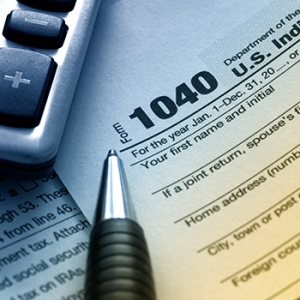
Even though the government tightened bankruptcy laws back in 2005, you still have the ability to relieve a tax burden. It’s important to meet with a qualified bankruptcy attorney first, so you can walk through the details of your situation and fully understand the possible tax implications or relieve you might receive.
First important note – if you’re being audited, filing for bankruptcy won’t stop the process. It will stop any collection action while your bankruptcy is pending, as long as there’s no Relief of Stay motion from the IRS. If you go this route, the 10 year statute of limitations is extended through the entire length of your bankruptcy PLUS 30 extra days for administrative time.
Second important issue – not all tax debt can be eliminated. Your tax debt has to meet 5 strict criteria to be eligible for discharge:
1) The debt must be related to a tax return that was due at least 3 years before you file bankruptcy. This includes any extensions you might have filed.
2) The debt must be associated with a tax return that was filed at least 2 years before you file bankruptcy.
3) The tax must have been assessed at least 240 days before you file for bankruptcy. The actual tax could be what you reported, what was calculated in an audit, or a final IRS assessment.
4) The tax return related to the tax owed cannot be fraudulent.
5) You cannot be guilty of tax evasion.
It’s also important to note – if you didn’t file a tax return (or several returns), the age of the debt doesn’t matter. You’re not allowed to discharge those debts through bankruptcy.
Before you can file for Chapter 7 or Chapter 13, your bankruptcy attorney must prove that your four previous tax returns were filed. Your attorney also has to provide a copy of your most recent return to the court, and to any creditors who request a copy.
If you have any more questions about IRS tax debts and bankruptcy, please call us at 214-760-7777. We’ll be glad to spend as much time as you need to explain how everything works and what your options are.
